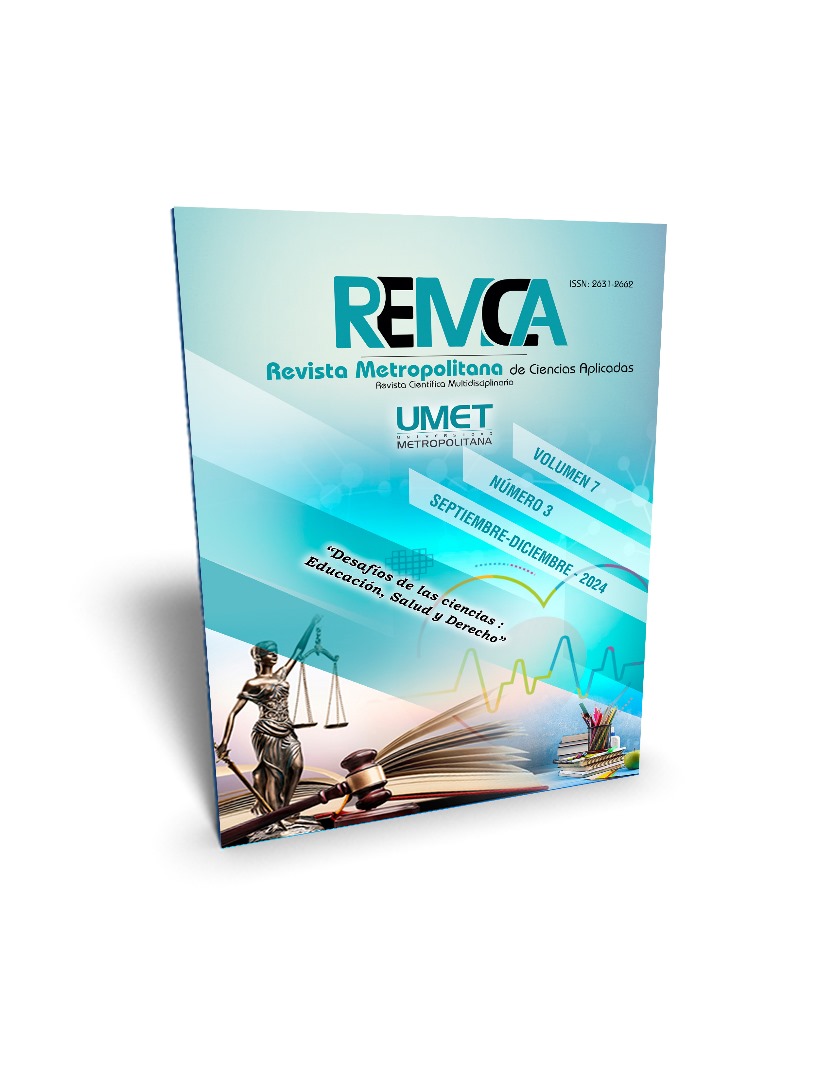Responsible consumption and value chain towards a sustainable model in the local development of the Quevedo canton
DOI:
https://doi.org/10.62452/87rf4733Keywords:
Sustainable products, environmental awareness, circular economy, economic developmentAbstract
The objective of this study was to analyze responsible consumption and the value chain as foundations for the development of a sustainable model in the Quevedo Canton. The sample size was calculated with Decision Analyst STATSTM 2.0 software. The information was obtained by applying a questionnaire to 123 consumers. Statistical analysis was performed with the SPSS program (Version 22.0). Consumption, availability of environmentally friendly products and the value chain were addressed. The results revealed a high degree of reliability for the 12 items, according to Cronbach's Alpha method, with a value of 0.80. Responsible consumption mainly allows the reduction of waste, conservation of resources and the choice of sustainable products and services, an educational model used is awareness and environmental education programs through digital means to provide effective solutions in the transition towards eco-friendly products. More sustainable consumption practices were adopted, cooperation between actors in the value chain allows them to promote educational awareness programs and community commitment, implementing environmental regulations in each of the links and executing permits to guarantee the quality in each of the products that are demanded.
Downloads
References
Álvarez, E., Picco, D., Robledo, A., Segovia, I., & Wallinger, M. (2020). Caracterización Del Perfil De Los Consumidores Groecológicos De La Región De Caba-Gba 2020. Revista Nutrición Investiga, 79-132. https://escuelanutricion.fmed.uba.ar/revistani/pdf/21a/nco/917_c.pdf
Araya, S., & Rojas, L. (2021). Cuidado de la salud como determinante del consumo de alimentos orgánicos en Chile. IDESIA, 39(1). https://www.scielo.cl/scielo.php?script=sci_arttext&pid=S0718-34292021000100059
Carranza, M., González, B., & Urdanigo, J. (2024). Metodología de la investigación y análisis cuantitativo. UTEG.
Chaparro, A., & Franco, L. (2020). Consumers and consumption of agroecological products in the Members of the Network of Agroecological Markets of Bogotá, Region-RMABR Consumidores e consumo de produtos agroecológicos nos integrantes da Rede de Mercados Agroecológicos de Bogotá, Região-RMABR. Cooperativismo y Desarrollo, 28(117), 1–36. https://doi.org/10.16925/2382-4220.2020.02.04
Del Cisne Quezada, A., & Chafla, P. (2024). Consumo responsable y su relación con la economía circular: perspectiva desde los hogares Loja, Ecuador. Revista Cuestiones Económicas, 34(1). https://doi.org/10.47550/RCE/34.1.7
Espinosa, E. (2023). Perspectivas empresariales en marketing ecológico: una revisión sistemática y de casos de estrategias y tendencias globales. Revista Científica, Arbitrada e Indizada, Bajo La Modalidad Electrónica., 7(1). https://orcid.org/0000-0002-8522-1691
González Osorio, B., Díaz Ponce, M., Oviedo Bayas, B., & Guerrero, N. (2023). Impactos de la educación ambiental basado en la clasificación de los residuos sólidos domésticos. Sinergias Educativas, 8, 73-83. http://sinergiaseducativas.mx/index.php/revista/eISSN:2661-6661
IBM Corp. (2019). IBM SPSS Statistics Base 26. https://www.ibm.com/docs/en/SSLVMB_26.0.0/pdf/en/IBM_SPSS_Statistics_Base.pdf
Laguna, C. (2020). Hábitos en la alimentación, especial mención a los productos ecológicos. (Trabajo de fin de grado). Universidad de Jaén.
Lewiecki, E. M., & Bouchonville, M. F. (2022). The current role of telehealth in the management of patients with osteoporosis. Expert Review of Endocrinology & Metabolism, 17(3), 245–254. https://doi.org/10.1080/17446651.2022.2078304
Matías Riquelme, P. (2020). Cadena de Valor de Michael Porter ¿Qué es y cuál es su importancia? https://gc.scalahed.com/recursos/files/r161r/w25317w/M1DPI106_S3_Cadena_de_valor_de_micahel_porter.pdf
Salazar-Duque, D. A., Portugal-Morejón, E. C., & Fierro-Mosquera, D. G. (2022). Producción y consumo de manera responsable de alimentos y bebidas en la ciudad de Quito. INNOVA Research Journal, 7(1), 140–165. https://doi.org/10.33890/innova.v7.n1.2022.1965
Sampieri, R., Fernández, C., & Baptista, P. (2014). Metodología de la Investigación. Mc Graw Hill Education.
Sánchez, P. (2021). Certificaciones sostenibles. Soluciones locales a un reto global. (Trabajo Fin de Grado). Universidad Politécnica de Madrid.
Villavicencio, M., & Maldonado, J. (2022). Marketing verde, una mirada desde el comercio minorista: Caso hipermercados del Ecuador. ECA Sinergia, 13(1). https://doi.org/10.33936/eca_sinergia.v13i1.3377
Downloads
Published
Issue
Section
License
Copyright (c) 2024 Marjorie Amada Tovar-Olivo, Betty Beatriz González-Osorio, Byron Oviedo-Bayas, Paula Plaza-Zambrano, Frank Antonio Ayala-Velásquez, Nuvia Zambrano-Barros (Autor/a)

This work is licensed under a Creative Commons Attribution-NonCommercial-ShareAlike 4.0 International License.
Authors who publish in Revista Metropolitana de Ciencias Aplicadas (REMCA), agree to the following terms:
1. Copyright
Authors retain unrestricted copyright to their work. Authors grant the journal the right of first publication. To this end, they assign the journal non-exclusive exploitation rights (reproduction, distribution, public communication, and transformation). Authors may enter into additional agreements for the non-exclusive distribution of the version of the work published in the journal, provided that acknowledgment of its initial publication in this journal is given.
© The authors.
2. License
The articles are published in the journal under the Creative Commons Attribution-NonCommercial-ShareAlike 4.0 International License (CC BY-NC-SA 4.0). The terms can be found at: https://creativecommons.org/licenses/by-nc-sa/4.0/deed.en
This license allows:
- Sharing: Copying and redistributing the material in any medium or format.
- Adapting: Remixing, transforming, and building upon the material.
Under the following terms:
- Attribution: You must give appropriate credit, provide a link to the license, and indicate if any changes were made. You may do this in any reasonable manner, but not in any way that suggests the licensor endorses or sponsors your use.
- NonCommercial: You may not use the material for commercial purposes.
- ShareAlike: If you remix, transform, or build upon the material, you must distribute your creation under the same license as the original work.
There are no additional restrictions. You may not apply legal terms or technological measures that legally restrict others from doing anything the license permits.




